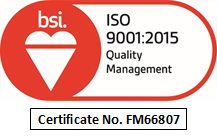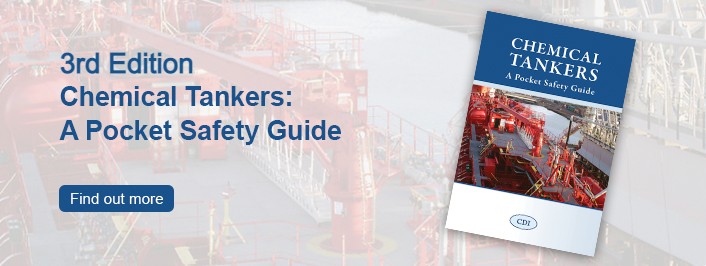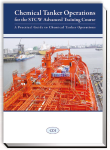CDI Publications
|
|
|
|
|
| Best Management Practices (BMP) for Maritime Security (MS) | |

The Industry Associations of BIMCO, ICS, IMCA, INTERCARGO, INTERTANKO and OCIMF, supported by CDI
and over forty maritime stakeholders, have released a consolidated and enhanced publication
“Best Management Practices (BMP) for Maritime Security (MS)”
As an interactive online publication, BMP Maritime Security consolidates previously published regional publications into a single, comprehensive publication with actionable insights and advice. It focuses on providing a threat and risk management process and, recognising the dynamic nature of regional security situations, provides signposts to direct users to the most up-to-date security intelligence and risk assessment information. |
|
| CDI Book: 3rd Edition "Chemical Tankers: A Pocket Safety Guide" | |
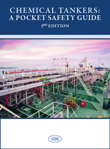
This pocket-sized book has been revised and updated to reflect current best practices and
covers basic tanker safety practices for crewmembers who are serving on, or about to serve on,
chemical tankers.
The book provides a good introduction and familiarisation to Chemical Tanker practice, terminology, and standards. This book explores best practices on tankers carrying chemical and similar hazardous products and provides a good introduction to safe tanker practice, terminology, and standards. It is not a detailed operational guide but is aimed as basic safety information for seafarers of all ranks and positions. It is suitable for seafarers who may be re-joining a tanker after leave for example, or for a person with little or no experience on tankers, in particular cadets and new ratings. Ideally, it should be read to aid the familiarisation process whenever you join a chemical tanker. The Guide features information necessary to carry out basic tasks safely and details potential hazards, what to do if a problem arises, and how to mitigate the risks through best practice. Not all of the cargoes carried on chemical tankers are hazardous. However, most do have some level of safety and/or pollution hazard connected to them. The marine industry recognises this and, through design, regulation, and best practice, has controlled or removed many of the hazards. A glossary of technical terms is included, with graphical representation of more complex concepts. This book is listed as a “Publication required to be onboard” in the CDI Ship inspection questionnaire (SIR) The book is available in both hard back and E-Book format direct from CDI's publishers: “Witherby Publishing Group” |
|
| CDI Best Practice: Dosing of Ship's Cargo Tanks | |
The scope of this paper is to:
|
|
| CDI Best Practice: The use of Portable Electronic Equipment on Board Tankers | |
The scope of this paper is to:
|
|
| CDI Best Practice: Managing Electrostatic Hazards in the Collection of Liquids in Portable Containers | |
The scope of this paper is aimed at vessels crew, that may get involved in activities related to the collecting of liquids in portable containers and aims to raise awareness on risks and controls that do not exist in other maritime industry publications, to provide guidance:
|
|
| NEW 2018: “Chemical Tanker Operations for the STCW Advanced Training Course” | |
|
The culmination of almost 3 years work; this publication is a very comprehensive guide to
chemical tanker cargo operations. It is an essential reference point for serving officers,
chemical tanker ship operators and managers, as well as those undertaking advanced training
as required by the STCW Convention.
“With a wealth of knowledge in chemical handling and transport, CDI's members felt it was essential to draw upon their collective expertise to produce a guide that would not only support the continuity of practical knowledge within the wider chemical tanker industry, but assist candidates studying for the Advanced Training for Chemical Tanker Cargo Operations (STCW) course”. said CDI's General Manager Howard Snaith. He went on to say, “CDI has worked closely with all stakeholders in producing this book, including chemical manufacturers, charterers and parcel tanker operators”. The book is written as a practical sequential prompt, an aide-mémoire for serving officers and managers, and as a consolidated study guide for those undertaking the advanced training for chemical tanker cargo operations as required by the STCW Convention. The book can be ordered direct from our publishers Witherby Seamanship, email : info@emailws.com or telephone +44(0)1506 463 227, or by clicking here. |
|
| Linked Ship/Shore Emergency Shutdown Systems for Oil and Chemical Transfers | |
This information paper recommends an Emergency Shutdown (ESD) connection that will link ship
and terminal ESD systems, so that manual activation by the terminal or ship will stop cargo
transfer operations. The information paper recommends an electrical umbilical incorporating
5-pin twist connectors for universal adoption. Linked Ship-Shore Emergency Shutdown Systems for Oil and Chemical Transfers.pdf
Linked Ship-Shore Emergency Shutdown Systems for Oil and Chemical Transfers.pdf
|
|
| New CDI Publication: "Guidelines for Liquid Chemical Hose Management" | |
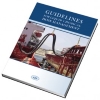
While the main focus of this NEW book is on the hoses used for the transfer of chemical products,
the essential and frequently used range of service hoses for water, steam, air and nitrogen are also covered.
This guide will be a required publication in the new 8th edition CDI Ship Inspection Questionnaire for Chemical Tankers and LPG Tankers, which will be published in Quarter 1; 2015. The book can be ordered direct from our publishers Witherby Seamanship, email : info@emailws.com or telephone +44(0)1506 463 227, or by clicking here. |
|
| Ship to Ship Transfer Guide for Petroleum, Chemicals & Liquefied Gases | |
|
The Guide is aimed at providing advice for Masters, Marine Superintendents and others, such as
STS service providers and transfer organisers, who may be involved in the planning and execution of
STS operations. Particular attention is given to the effective planning of operations and aspects
that include risk assessment, ship compatibility and the management of workloads to minimise fatigue. The Guide contains recommendations on safety, minimum equipment levels and good operating practices, but it is recognised that if more stringent international, national or local regulations apply, they must take precedence. The guide is a required publication in the CDI Ship Inspection Reports (SIR's). The obtain the guide please contact our publishers Witherby Seamanship www.witherbyseamanship.com email: info@emailws.com or telephone +44(0)1506 463 227 More details available here:  STS_emailer.pdf
STS_emailer.pdf
|
|
| CDI Best Practice Recommendation Regarding the use of Nitrogen | |
|
The objective of the paper is to set out the Chemical industries recommendation regarding the use of
Nitrogen on sea going chemical tankers and to supplement safer ways of working within the industry,
fully recognising the dangers of Nitrogen, both to people and ships. This document is freely available to download here:  CDI-Best_Practice Nitrogen.pdf
CDI-Best_Practice Nitrogen.pdf
|
|
| Safety Data Sheets for Chemical Tankers ? An Information paper for Industry | |
|
This information paper has been compiled to assist anyone (Seafarers, Manufacturers, Shippers,
Port State Control Officers, National and International Authorities) associated with the carriage
of bulk liquid chemicals and other products subject to the international code for the construction
and equipment of ships carrying dangerous chemicals in bulk – the IBC Code. This document is freely available to download here:  SafetyData Sheets_ChemicalTankers_A4PaperSize.pdf
SafetyData Sheets_ChemicalTankers_A4PaperSize.pdf
|
|
